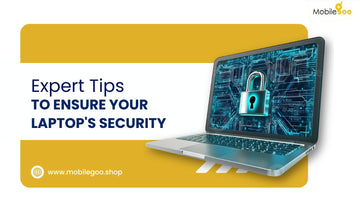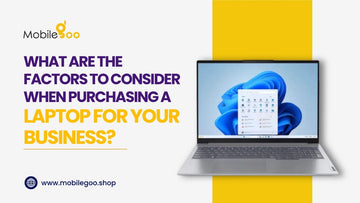
Your laptops contain various details, including your banking info, private conversations, and even work files. If this data falls into the wrong hands, it can be misused to scam or impersonate you. Therefore, your laptop’s security is always an important concern. Thankfully, there is a lot that you can do to ensure your laptop is safe and secure. In this blog, we have listed down a few expert tips that will protect your laptop at all times.
8 Safety Tips To Protect Your Laptop
1. Use Strong, Unique Passwords for Every Account
2. Enable Two-Factor Authentication (2FA)
3. Regularly Update Software and Operating Systems
4. Use a Reliable VPN on Public Networks
5. Encrypt Your Hard Drive
6. Enable a Firewall
7. Beware of Phishing Attacks
8. Physically Secure Your Laptop
Conclusion
Frequently Asked Questions About Laptop Security
1. Which antivirus is good for laptops?
2. Can a computer be 100% secure?
3. Is a desktop more secure than a laptop?
8 Safety Tips To Protect Your Laptop
1. Use Strong, Unique Passwords for Every Account
Passwords are often the first line of defence against unauthorised access. Yet, many people still use simple passwords that anyone can guess.
For instance, people often set passwords like ‘12345678” so that it is easy to remember. However, such passwords can be easily cracked as well. You should set a strong password that is at least 12-16 characters long and includes a mix of uppercase and lowercase letters, numbers, and symbols.
Another common mistake people make is setting the same password for multiple accounts. Password breaches can lead to "credential stuffing" attacks, where attackers try your leaked password on other services. So, if one account gets compromised, there is a chance that your other accounts can get compromised as well.
We understand that it is difficult to remember a different password for every account. This is why using a password manager is recommended. For example, Google Password Manager is a great tool that stores complex passwords for each of your accounts. Whenever you try logging into your account, Google will automatically suggest your user ID and password.
2. Enable Two-Factor Authentication (2FA)
Even if you add a strong password, your accounts are not 100% secure. For an additional layer of security to protect your laptop, you can add two-factor authentication. Therefore, if someone manages to crack your password, they will not be able to access it unless the two-factor authentication is completed. It will ask to confirm the verification code sent to your phone or app like Google Authenticator before giving access.
So, as long as people do not get access to your phone, they will not be able to get into your account, even after cracking the password. So make sure to enable it on any account that supports it, especially for email, banking, and work-related accounts.
3. Regularly Update Software and Operating Systems
Updates are not just for adding new features. Some updates contain security patches that make your device more secure. So, you should always check that your laptop’s OS system is up to date. Also, it is best that you keep auto-updating on. Every time your device will receive an update, the process will start automatically. You do not have to manually check for updates repeatedly.
Even though people update the OS system, they often ignore the software installed in the device. You should never make this mistake. Outdated software is one of the biggest vulnerabilities for laptops, whether it is an outdated OS or any software. Updates that contain security patches fix those known issues and vulnerabilities to protect your laptop.
Please note: We are not talking about your antivirus software only. Everything from your browser to your media players could be a potential vulnerability if not kept up to date.
Also Read: Simple Tips to Maintain and Care for Your Refurbished Laptop
4. Use a Reliable VPN on Public Networks
Do you travel a lot with your laptop or work outdoors? Chances are that you connect to a public Wi-Fi network for the internet. Hotels, cafes, coffee shops, and other places with their own Wi-Fi generally have a public network.
While it is offered for convenience, think twice before using them as they can be notoriously insecure. Anyone connected to the same network can potentially intercept the data you are sending and receiving. This can include your photos, passwords, texts, emails etc.
If you have to rely on the public network, the only way to keep yourself secure is by using a VPN (Virtual Private Network). VPN is designed to encrypt your internet traffic and provide a secure connection. Intercepting your messages will be a lot harder for hackers. Just make sure you choose a trusted VPN provider that does not log your activities and uses modern encryption protocols.
5. Encrypt Your Hard Drive
When you hear the word encryption, it may sound very techie. But, the trust is that encrypting your hard drive is quite easy. Once encrypted, no one will be able to access the information on your hard drive without your permission, even if the device is stolen. This is because the data on your hard drive is scrambled during the process so that it is completely unreadable. You will need the encryption key to access the information.
If you are a Windows OS user, you can use BitLocker. For macOS users, FileVault is available. These are built-in encryption options that are easy to activate.
6. Enable a Firewall

Most operating systems come with built-in firewalls. A firewall basically acts as a barrier between your device and potential threats from the internet. It carefully monitors incoming and outgoing network traffic when you use the internet. As soon as it finds any suspicious activities, it immediately blocks the threat. Therefore, the firewall is an additional layer of security to protect your laptop from online threats.
Most operating systems come with built-in firewalls. You just have to ensure that it is enabled on your device and properly configured.
People in corporate or work environments, where a strong security system is essential, can consider a hardware firewall or an enterprise-level firewall setup. These are much more advanced than regular systems and can keep your device secure.
Also Read: Laptop Cooling Solutions: Keeping Your Device Cool and Efficient
7. Beware of Phishing Attacks
Have you heard of phishing attacks? They are one of the most common forms of cyberattack, where scammers attempt to trick you into revealing personal information.
They will first send you a mail or message, pretending to be your bank or any other organisation. The text sent in that message contains a link that takes you to a log-in page. This page is always very well-designed so that it appears very legitimate. Once you put your credentials on that log-in page and submit, the details are automatically sent to the sender. So, the sender can now use the data to log into your account.
The only way to save yourself from such attacks is by staying vigilant at all times. Do not click any unknown link or document. Also, check for typos in the email address. If you are directed to a webpage, check the link carefully and ensure that it is indeed from a legitimate source. If unsure about a message, directly contact the company to confirm its legitimacy.
8. Physically Secure Your Laptop
There are various types of digital threats from which you have to protect your laptop. However, while focusing on digital threats, do not forget about physical security. If you are travelling with your laptop, be very careful how you carry it. It should be in a secure place at all times. Also, you can use physical security cables to deter theft.
Another thing you can do is keep your laptop locked whenever you have to step away so that no one can access it without your knowledge. Also, as a backup plan, use tracking software such as “Find My Device” to locate your laptop remotely if it is lost or stolen. As a last resort, you can use it to lock or erase your data remotely as well.
Conclusion
Our expert tips will help to ensure the security of your laptop. Make sure you follow them at all times to keep threats away. However, if your laptop is outdated and does not receive updates anymore, the only option you have in hand is to buy another laptop. Do not worry if you do not have the budget. Refurbished laptops are a great alternative if you want laptops at low prices.
At Mobilegoo, all refurbished laptops are thoroughly checked to ensure they meet the industry standards. We perform 55+ quality checks before selling it to our customers and offer up to a 1 year warranty. Additionally, you can opt for EMI when buying refurbished laptops.
While you are at it, you can sell your old or used laptop to Mobilegoo and get the best value for your device. We have an online portal where you can sell it in just a minute. Just answer a few questions about your device and our agent will pick up the device from your doorstep. You will also get an instant cash payment.
Frequently Asked Questions About Laptop Security
1. Which antivirus is good for laptops?
There are many great antivirus software for laptops. Here are a few renowned names:
-
Bitdefender: Known for its excellent malware detection rates, Bitdefender offers real-time laptop protection, anti-phishing tools, and ransomware protection. Users prefer it because it is lightweight and will not slow down your laptop. If your device is slightly old, it is one of the best options.
-
Norton 360: Norton is one of the most prominent names in laptop security. Besides top-notch malware detection, it provides privacy features like a built-in VPN, password manager, and dark web monitoring.
-
Kaspersky: Kaspersky is also dominating the laptop security market with its strong malware protection. It can also help to avoid phishing attacks and ensure secure browsing.
-
McAfee: McAfee is another trusted name that provides strong real-time protection along with useful tools like identity theft protection, a password manager, and file encryption. It is an all-rounder with a good track record.
2. Can a computer be 100% secure?
The short answer is No — a computer can never be 100% secure. However, you can take a lot of precautions to avoid fraud. While you cannot be completely immune to cyber attacks, these tips will reduce the chances significantly. Just carefully follow the expert tips we have shared, and your device should stay secure.
3. Is a desktop more secure than a laptop?
There is no evidence supporting this statement. Whether you are using a desktop or a laptop, they use similar parts and have the same system. Hence, if your laptop can be under threat from cyber attacks, your desktop is vulnerable as well. You will have to follow the same security tips to secure your desktop computer.
The only way you can consider a desktop more secure than a laptop is that no one can walk away with your desktop, without you knowing about it. Laptops’ portability makes them an easy target for thieves.






